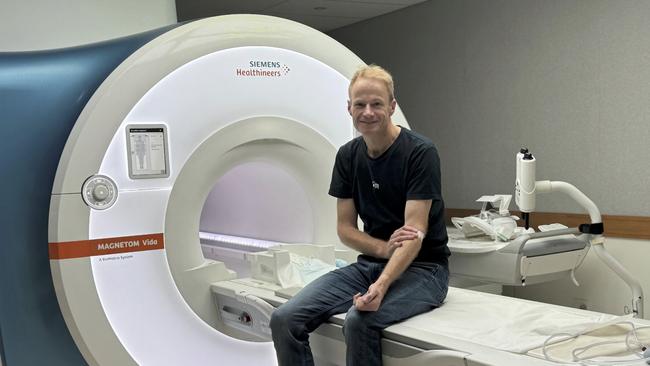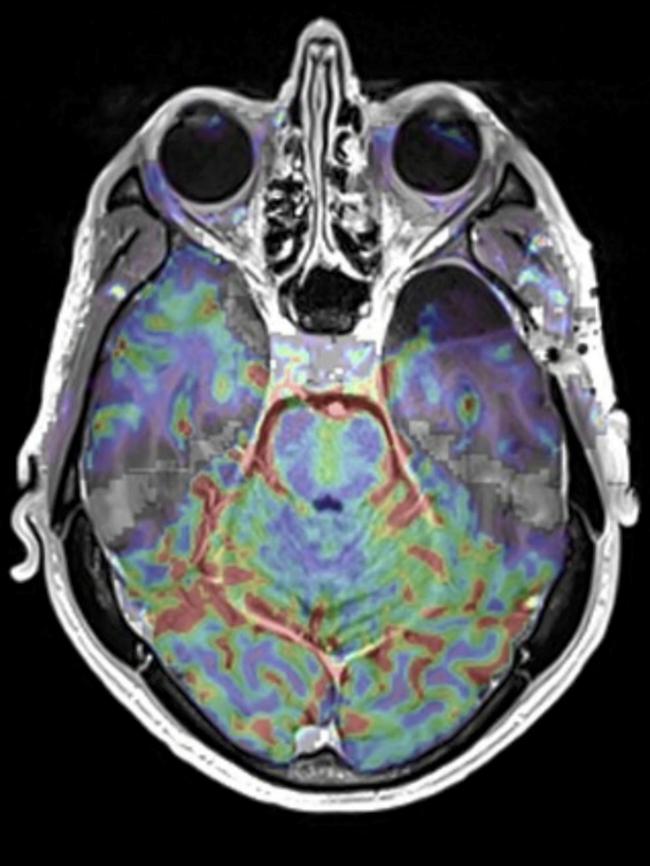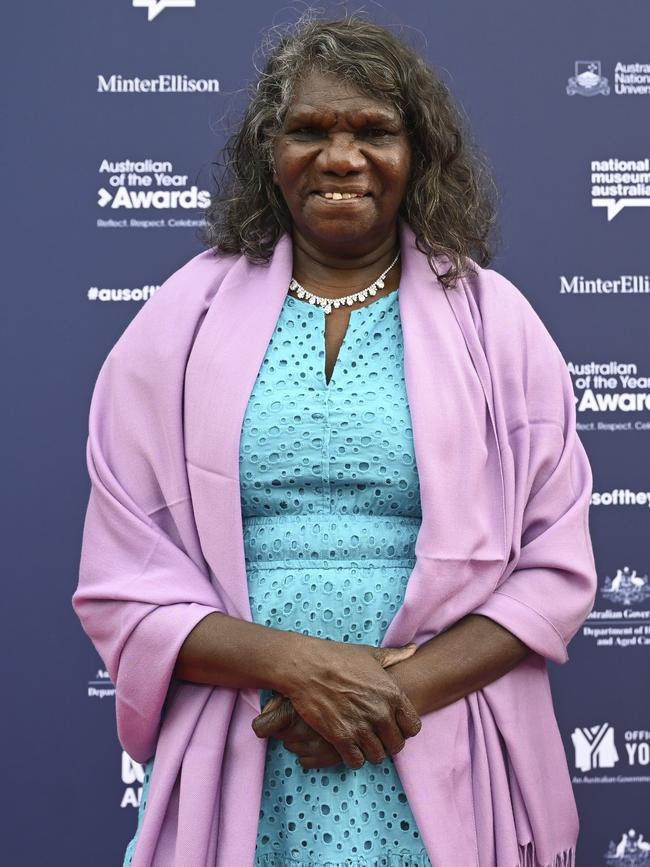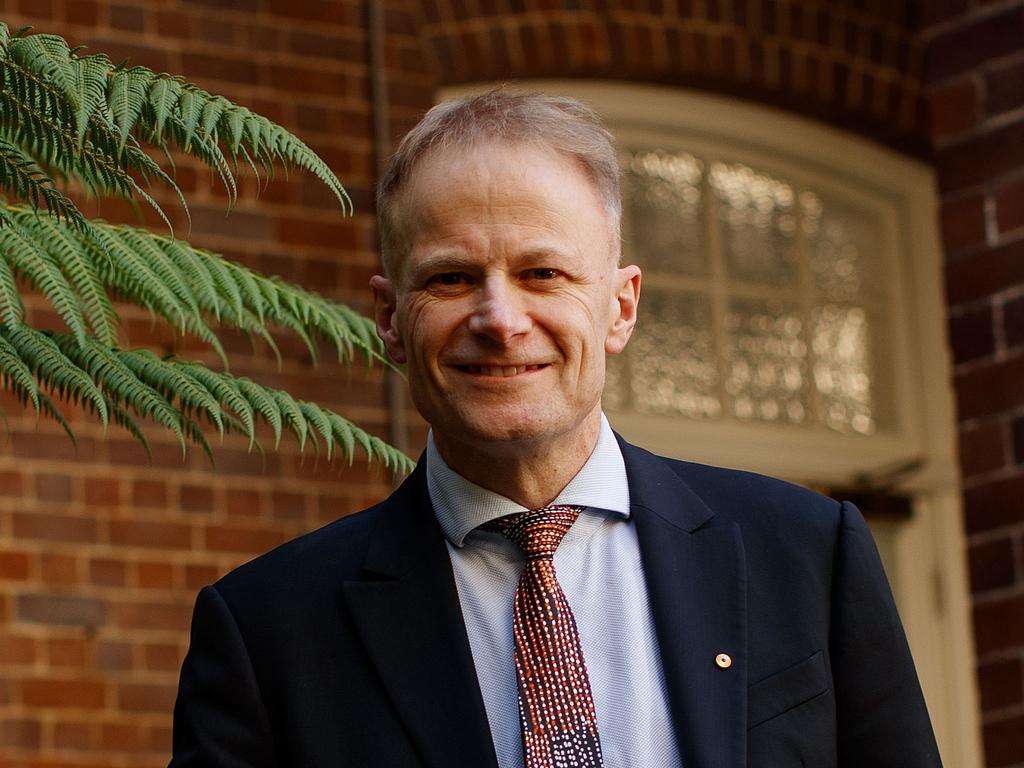Scientists on a mission to cure cancer, Richard Scolyer and Georgina Long, named 2024 Australians of the Year
Melanoma professors Richard Scolyer and Georgina Long will use the award to change attitudes to sun exposure: ‘there is nothing healthy about a tan’.
The 57-year-old terminally ill doctor whose lifelong devotion to fighting melanoma earned him a share of the 2024 Australian of the Year award on Thursday night, declared “I don’t want to die” as he accepted the honour.
In the most emotionally moving speech by a recipient of the Australia Day Council award, professor Richard Scolyer said: “I love my life, my family, my work. I have so much more to do and to give.”
“I stand here tonight as a terminal brain cancer patient,” Professor Scolyer said. “I’m only 57, I don’t want to die.”

Professor Scolyer and his research partner Georgina Long were named 2024 Australians of the Year for their world-leading research treating melanoma and courageous response to his diagnosis eight months ago with Grade 4 glioblastoma, the most deadly type of brain cancer.
Professor Scolyer said it was a “no-brainer” to use the breakthrough treatments he helped pioneer to run a world-first experiment on himself after he was diagnosed with an incurable tumour. “I’m one of the many thousands of cancer patients who have travelled this path and thousands will follow,” he said.

“Devising this world-first experimental treatment for my type of brain cancer was bold. For me, the decision to take on Georgina’s groundbreaking plan was a no-brainer. Here was an opportunity for us to crack another incurable cancer and make a difference, if not for me, then for others.
“From where I stand, with the future now measured in months rather than decades, it’s impossible for me to properly articulate how proud and hopeful that this also makes me.”
Professor Long warned “our bronzed Aussie culture is actually killing us”.
Addressing the Australian of the Year Awards assembly, the Melanoma Institute Australia co-director called for a re-evaluation of Australia’s careless attitude towards sun exposure.
Australia has the highest melanoma rate in the world, leading to its status as Australia’s “national cancer’’.
“Our mission is zero deaths from melanoma,” Professor Long said. “We call on advertisers and social media influencers to stop glamourising tanning or using it to sell or advertise for entertainment. When it comes to tanning, we are swimming outside the flags.
“A tan is skin cells in trauma from overexposure to UV radiation from the sun. There is nothing healthy about a tan, nothing.”
Professor Scolyer echoed the sentiment. “We must elevate sun safety to equal status with other life-saving safety measures like wearing a seatbelt or a helmet,” he said. “Imagine the outcry if smoking was still glamourised like this.”
The nation’s most successful Olympian Emma McKeon has won the Young Australian of the Year category, while northeast Arnhem Land teacher and elder Yalmay Yunupingu was named Senior Australian of the Year.
The farmer who revived palaeontology, David Elliott, has taken out Local Hero.
Professor Scolyer and Professor Long said it was an honour to be counted among such an “amazing, inspiring” field, and vowed to use the platform to advocate for sun safety awareness and to advance research in the brain cancer field.
“To partner up with Georgina, and see if we could make a difference … I guess it did take a lot of work to get a wider community on board to give this a crack,” he said.
Ms Long said: “We are extremely proud that the data we have generated from this fearless approach is already changing the field. Human clinical trials now look set to follow and the sooner the better.”
Professor Scolyer wrote on his social media – where he has recorded milestones in his treatment journey – earlier this week that there had been no recurrence of his “supposedly” untreatable tumour eight months from his diagnosis last June.
The medium recurrence time for patients is six months.
The immunotherapy treatment, which harnesses the body’s response to act like a “sniffer dog” seeking out cancer cells, was delivered before surgery to remove the tumour, followed by more infusions of immunotherapy and radiotherapy.


“Ultimately, we don’t know if this will make any difference to me or whether my life will be prolonged,” he said. “People were very scared I would die very quickly with this treatment or be left with permanent side effects, that would ruin the rest of my life.
“Thankfully this hasn’t happened but to find out if this treatment is going to make a difference, we need a clinical trial with a large number of patients.”
The pioneering pair attended the award ceremony in Canberra on Thursday night alongside McKeon, whose success in and out of the pool set her apart from other finalists in her category.
In 2020, McKeon became the first female swimmer and second woman in history to win seven medals in a single Olympics; she has also volunteered for UNICEF and Dolly’s Dream.
Fellow Queenslander Mr Elliott, a co-founder of the Australian Age of Dinosaurs Museum of Natural History, was honoured for his contribution to palaeontology after a chance discovery of a fossil on his farm.

The museum is now our most significant collection of fossils, a major tourist attraction and a centre for scientific research.
Ms Yunupingu has led the way in preserving her Yolngu Matha language since she began translating Dr Seuss books at the local library.
She taught at Yirrkala Bilingual School, an 1000km drive east from Darwin, for four decades, where she forged a unique bilingual approach to safeguard the future of the Yolngu language and culture.





To join the conversation, please log in. Don't have an account? Register
Join the conversation, you are commenting as Logout